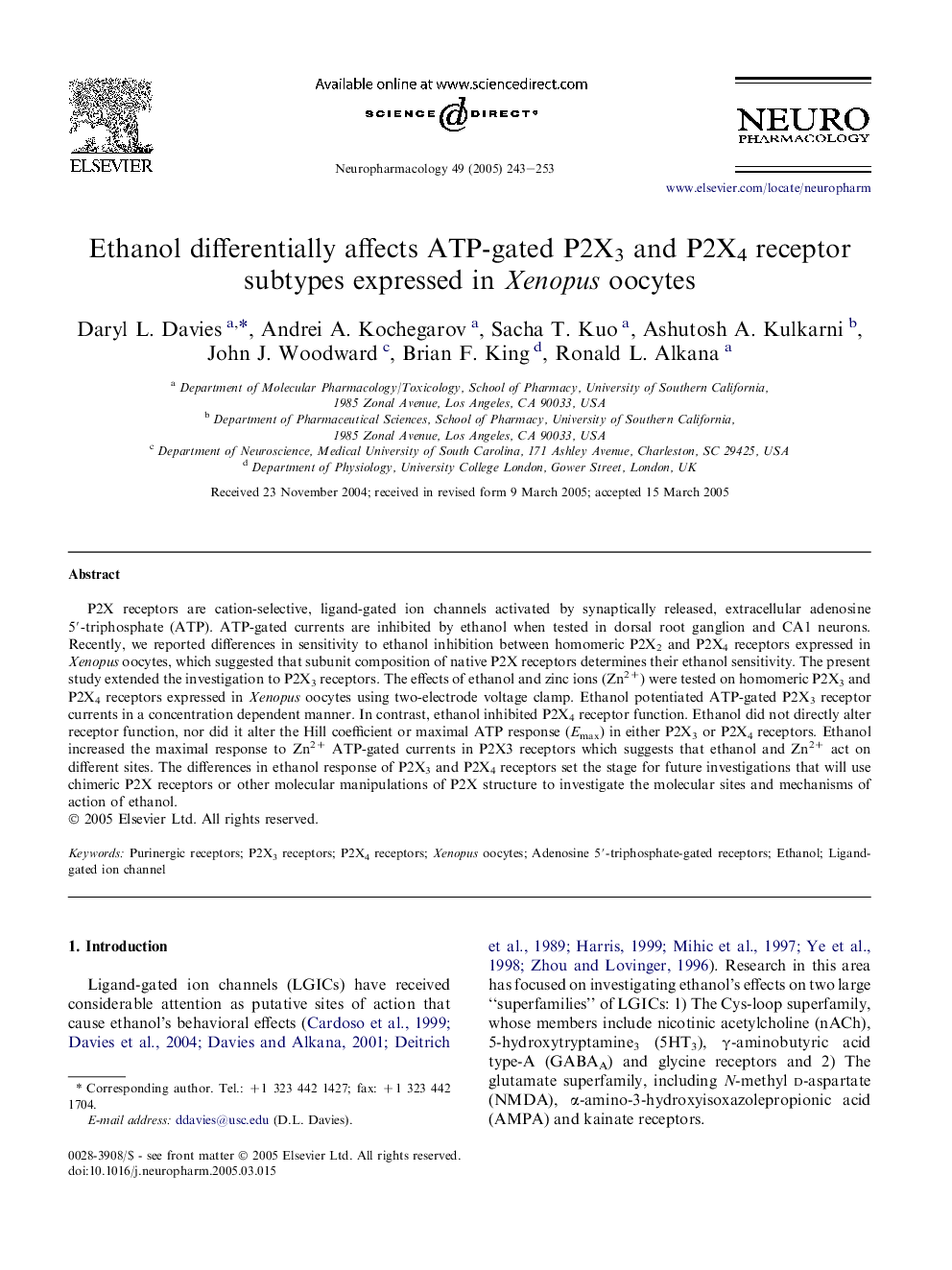| Article ID | Journal | Published Year | Pages | File Type |
|---|---|---|---|---|
| 8998266 | Neuropharmacology | 2005 | 11 Pages |
Abstract
P2X receptors are cation-selective, ligand-gated ion channels activated by synaptically released, extracellular adenosine 5â²-triphosphate (ATP). ATP-gated currents are inhibited by ethanol when tested in dorsal root ganglion and CA1 neurons. Recently, we reported differences in sensitivity to ethanol inhibition between homomeric P2X2 and P2X4 receptors expressed in Xenopus oocytes, which suggested that subunit composition of native P2X receptors determines their ethanol sensitivity. The present study extended the investigation to P2X3 receptors. The effects of ethanol and zinc ions (Zn2+) were tested on homomeric P2X3 and P2X4 receptors expressed in Xenopus oocytes using two-electrode voltage clamp. Ethanol potentiated ATP-gated P2X3 receptor currents in a concentration dependent manner. In contrast, ethanol inhibited P2X4 receptor function. Ethanol did not directly alter receptor function, nor did it alter the Hill coefficient or maximal ATP response (Emax) in either P2X3 or P2X4 receptors. Ethanol increased the maximal response to Zn2+ ATP-gated currents in P2X3 receptors which suggests that ethanol and Zn2+ act on different sites. The differences in ethanol response of P2X3 and P2X4 receptors set the stage for future investigations that will use chimeric P2X receptors or other molecular manipulations of P2X structure to investigate the molecular sites and mechanisms of action of ethanol.
Keywords
Related Topics
Life Sciences
Neuroscience
Behavioral Neuroscience
Authors
Daryl L. Davies, Andrei A. Kochegarov, Sacha T. Kuo, Ashutosh A. Kulkarni, John J. Woodward, Brian F. King, Ronald L. Alkana,
